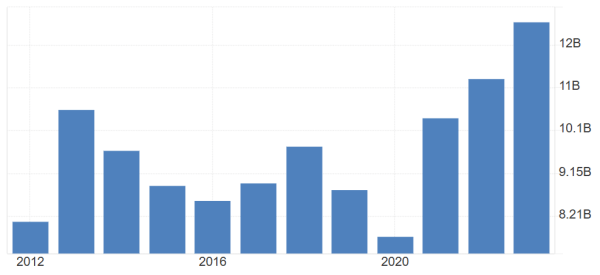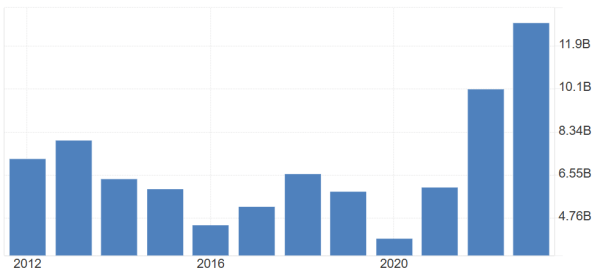

The Labour Party’s ascent to power necessitates adjustments to the India-UK FTA, but both sides remain committed to the deal.
A wave of anticipation surrounds the India-UK FTA as the Labour Party ascends to power in the UK. This trade deal which has been under negotiation for over two years stands at the cusp of completion and signing. However, the transition in UK leadership necessitates a closer examination of how the new government might influence the agreement’s trajectory and the strategic adjustments needed to ensure its success.
The India-UK FTA is a significant milestone, promising to unlock vast markers for exporters from both countries. There was a marked improvement in exports to India from ASEAN, Japan, and South Korea following their FTAs, underscore the potential benefits for the UK. By reducing high tariff barriers, the FTA offers UK exporters a competitive edge, enabling them to capitalise on India’s dynamic market. For India, an important aspect of the India-UK FTA negotiations has been the issue of visas for Indian professionals.
The Labour Party is likely to support the FTA with minor adjustments. Reports suggest that with a few modifications such as reducing the number of visas for Indian professionals, the Labour government might endorse the agreement, potentially setting the stage for its signing as early as October this year.
READ I RBI to revamp export-import regulations
Addressing visa issues
Any attempt to reduce the number of visas could have significant implications for the agreement. While it may be seen as a compromise to address domestic concerns about immigration, it is crucial that this adjustment does not undermine the overall benefits of the FTA. Indian professionals play a vital role in various sectors of the UK economy, and any reduction in their numbers must be carefully balanced to avoid negative impacts on bilateral trade and economic collaboration.
Despite the optimistic outlook, India must navigate several critical issues to safeguard its interests:
Carbon Border Adjustment Measure (CBAM)
One of the foremost concerns for India is the UK’s proposed Carbon Border Adjustment Measure (CBAM). This measure could impose high carbon taxes on imports based on their carbon footprint, potentially negating the benefits of reduced tariffs. While the FTA might lower tariffs, Indian exports could still face substantial carbon taxes, posing a significant challenge. India must seek clarity on the implementation and impact of CBAM to ensure that the advantages of the FTA are not undermined by environmental taxes.
Labour, environment, intellectual property
Another area of concern is the inclusion of non-traditional subjects like labour, environment, gender, and intellectual property rights in the FTA. Historically, India has resisted incorporating these topics into trade agreements due to the domestic policy changes they often necessitate. The potential imposition of non-tariff barriers, particularly related to environmental and sustainability standards, could also adversely affect Indian exports. India must negotiate firmly to ensure that the market access gained through tariff elimination is not compromised by other barriers, particularly in labour-intensive sectors like textiles.
Mutual recognition of qualifications
One of the notable developments in the FTA discussions has been the mutual recognition of academic qualifications between the two countries. This agreement will facilitate easier transfer of credits and qualifications for students and professionals, enhancing educational and professional exchanges. However, it is important to note that certain fields, such as engineering, medicine, nursing, pharmacy, law, and architecture, are not covered. Ensuring comprehensive recognition across all major fields would further strengthen the benefits of the FTA and support the mobility of skilled labour between India and the UK.
India-UK FTA : Strategic negotiations
India must engage in strategic negotiations to achieve a balanced agreement that benefits both nations while protecting its exporters from unfair disadvantages. Extensive consultations and a firm stance on key issues are imperative to safeguard India’s interests. The goal should be to ensure that the FTA not only opens new avenues for trade but also addresses critical concerns that could otherwise erode its benefits.
Indian exports to UK

United Kingdom exports to India

The 8th round of negotiations for the India-UK FTA includes discussions on digital and digitally enabled services, as well as investor protections. These areas are critical in the modern global economy, where digital trade is rapidly growing. Establishing clear and fair rules for digital trade will help both nations capitalise on new opportunities in the tech sector. Additionally, robust investor protections are essential to foster confidence and encourage investments. As negotiations continue, both countries must ensure that these provisions are well-crafted to promote innovation and protect investors’ interests.
The Labour Party’s support for the India-UK FTA marks a significant step towards the agreement’s fruition. However, the complexities involved necessitate careful and strategic negotiations. As India continues to engage with the UK, the focus must remain on achieving a comprehensive and balanced agreement that fosters economic growth and mutual benefits.
The India-UK FTA holds the promise of enhancing bilateral trade and strengthening economic ties between the two nations. With the Labour Party at the helm, the stage is set for a potentially historic agreement. Yet, the journey ahead requires vigilance, strategic foresight, and a commitment to safeguarding national interests. As the negotiations progress, both India and the UK must work collaboratively to realise the full potential of this landmark trade deal.






